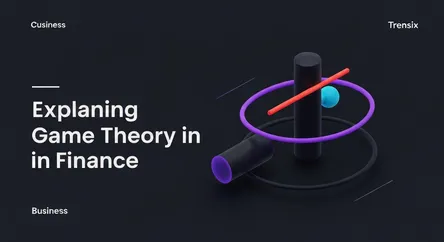Business
Explaining Game Theory in Finance

Discover Game Theory, the science of strategic decision-making, and its growing impact on finance, investing, and business strategy.
What is it?
Game Theory is a theoretical framework for envisioning social situations among competing players. In finance and business, it's the study of mathematical models of strategic interaction between rational decision-makers. It helps predict outcomes when individuals or companies make choices that affect one another. Key concepts like the Nash Equilibrium, where no player can benefit by changing their strategy while the other players keep theirs unchanged, are fundamental. It's essentially the science of strategy, used to find the optimal course of action in a competitive environment.
Why is it trending?
Game Theory is trending due to its increasing application in complex, modern economic systems. In finance, it's used to model everything from auction theory and corporate mergers to cryptocurrency markets and high-frequency trading algorithms. As markets become more interconnected and competitive, understanding the strategic behavior of rivals is crucial for gaining an edge. The rise of data analytics and AI has also made it easier to apply these complex models to real-world business and investment scenarios, making it a hot topic in strategic planning.
How does it affect people?
Game Theory influences how businesses and investors approach decision-making. For a company, it can dictate pricing strategies, product launch timings, and negotiation tactics with suppliers or competitors. For individual investors, it provides a lens to analyze market behavior, such as why companies might engage in a price war or how central bank policies might influence market players. It encourages thinking several moves ahead, considering the potential reactions of others, ultimately leading to more informed and strategic financial and business choices.